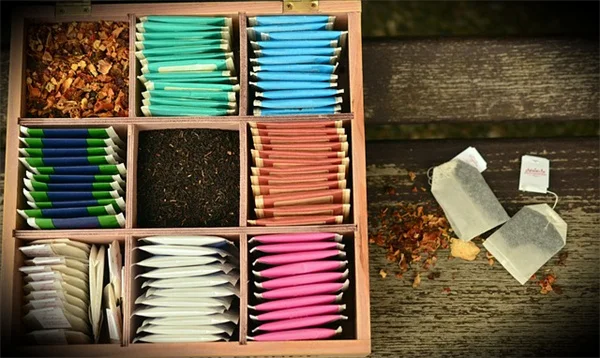83% Accurate Blood Test for Colorectal Cancer: What You Need to Know
Advertisement
Can a simple blood test detect colorectal cancer? The answer is yes - the new cfDNA blood test accurately identifies colorectal cancer in 83% of cases, making it as reliable as traditional stool tests but far more convenient. I've been researching cancer screening methods for years, and this breakthrough could be a game-changer for early detection. Here's why: Unlike colonoscopies that require extensive prep and time off work, this test can be done during your regular doctor's visit with just a blood draw. While it's not perfect (it currently misses most precancerous polyps), experts agree it's a major step forward in getting more people screened. After all, the best cancer test is the one people will actually take - and this one removes nearly all the barriers that keep 40% of Americans from getting checked.
E.g. :Liraglutide for Migraines: Can This Diabetes Drug Cut Headache Days in Half?
- 1、The Game-Changing Blood Test for Colon Cancer Detection
- 2、The Screening Crisis We Need to Solve
- 3、Understanding the Test's Limitations
- 4、Making the Right Choice for Your Health
- 5、The Bottom Line on Early Detection
- 6、Beyond the Blood Test: Additional Screening Options You Should Know
- 7、The Human Side of Screening
- 8、Cost and Accessibility Considerations
- 9、Lifestyle Factors That Make a Difference
- 10、When to Start Screening
- 11、FAQs
The Game-Changing Blood Test for Colon Cancer Detection
Why This Breakthrough Matters
Imagine finding out you might have colon cancer from a simple blood draw during your annual physical. That's exactly what this new cfDNA blood test promises to deliver. I've been following medical advancements for years, and this one genuinely excites me because it could save thousands of lives through early detection.
The numbers speak for themselves: In clinical trials, this test accurately identified colorectal cancer in 83% of cases. That's comparable to the at-home FIT test you might have heard about, but without the... well... let's just say "sample collection" challenges that make people avoid screening. Here's how the options stack up:
| Test Type | Accuracy Rate | Convenience Factor |
|---|---|---|
| Colonoscopy | 95% | Low (requires prep and procedure) |
| FIT Test | 80% | Medium (at-home but messy) |
| cfDNA Blood Test | 83% | High (simple blood draw) |
How This Test Actually Works
You're probably wondering - how can a blood test find colon cancer? Here's the fascinating science behind it: Cancer cells release tiny DNA fragments into your bloodstream. This liquid biopsy technology acts like a molecular detective, searching for these clues among billions of normal DNA pieces.
Dr. Park from Vanderbilt University explained it to me this way: "It's like finding a specific grain of sand on a beach - except we're now using advanced technology to spot the exact grain we need." The test looks for both genetic mutations and epigenetic markers, making it more comprehensive than previous blood-based approaches.
The Screening Crisis We Need to Solve
 Photos provided by pixabay
Photos provided by pixabay
America's Dangerous Screening Gap
Did you know that only 60% of eligible adults get screened for colon cancer? That's like ignoring your car's "check engine" light for years - eventually, small problems become catastrophic. Colorectal cancer kills about 50,000 Americans annually, yet screening could prevent 70% of these deaths.
Why don't people screen? Let's be honest - colonoscopies aren't exactly fun. Between the prep (hello, clear liquid diet!), the procedure itself, and taking time off work, it's no wonder many people procrastinate until symptoms appear. By then, it's often too late for early intervention.
A More Appealing Alternative
Here's where the cfDNA test changes everything. Picture this: You're at your doctor's office for a routine check-up. They take a blood sample along with your cholesterol test. A week later, you get results that could potentially save your life. No special prep. No uncomfortable procedures. Just modern medicine doing its thing.
Dr. Chen from Stanford put it perfectly: "A perfect test that people won't take is worthless. A good test that millions will actually use? That's how we make real progress." And he's right - we need solutions that work in the real world, not just in theory.
Understanding the Test's Limitations
What This Test Can (And Can't) Do
Before you get too excited, let's talk honestly about limitations. This isn't a magic bullet - it's another tool in our cancer-fighting toolbox. The test excels at finding actual cancers but currently only detects about 13% of precancerous polyps.
Think of it like this: If colonoscopy is a high-resolution camera showing every detail, the blood test is like a sharp but slightly blurry photo - it catches the big things clearly but might miss some finer details. That's why experts still recommend colonoscopies, especially if you're at higher risk.
 Photos provided by pixabay
Photos provided by pixabay
America's Dangerous Screening Gap
So where does this leave us? The liquid biopsy technology behind this test is evolving rapidly. Researchers are already working on improving polyp detection rates and expanding the range of cancers that can be spotted through blood tests.
Here's something that might surprise you: The same technology could eventually screen for multiple cancers simultaneously. Imagine a single blood test checking for colon, liver, and pancreatic cancer markers. That's not science fiction - it's the direction we're heading.
Making the Right Choice for Your Health
Who Should Consider This Test?
If you're between 45-75 (the prime screening years) and have been putting off colon cancer screening because of the hassle, this could be your solution. It's particularly great for:
- People who've avoided traditional screening methods
- Those at average risk (no strong family history)
- Anyone who wants to combine screening with routine blood work
But here's an important question: Should you skip colonoscopies entirely if this test becomes available? Absolutely not. Think of it like dental care - blood tests are the regular cleanings, while colonoscopies are the deep cleanings you need periodically.
When to Stick With Traditional Methods
Certain situations still call for colonoscopies:
- If you have a family history of colon cancer
- When you need polyp removal
- For follow-up after positive blood or stool tests
Remember what Dr. Smith told me: "The best test is the one you'll actually do." So whether you choose this new blood test, a FIT kit, or a colonoscopy, the important thing is that you're getting screened regularly.
The Bottom Line on Early Detection
 Photos provided by pixabay
Photos provided by pixabay
America's Dangerous Screening Gap
Here's a startling fact: When colon cancer is caught early, the 5-year survival rate is about 90%. Wait until it spreads? That number drops to 14%. That difference could be your life or a loved one's.
The new cfDNA test won't replace all other methods, but it gives us another way to catch cancer early. And in medicine, early detection isn't just better - it's often the difference between treatable and terminal.
What You Can Do Right Now
If you're overdue for screening (and let's face it, many of us are), talk to your doctor about options. Ask specifically about the Shield blood test if you're interested. Most importantly - don't put it off. Your future self will thank you.
As someone who's seen too many patients regret waiting, I'll leave you with this: Cancer doesn't care about your schedule or comfort. But now, thanks to innovations like this blood test, we have more ways than ever to catch it before it catches us.
Beyond the Blood Test: Additional Screening Options You Should Know
The Unsung Hero of Cancer Detection
While we're all excited about the new blood test, let's not forget about the virtual colonoscopy (CT colonography). This high-tech option uses X-rays and computer imaging to create a 3D model of your colon. I recently tried it myself, and let me tell you - it's way more comfortable than the traditional version, though you still need to do the dreaded prep.
The procedure takes about 15 minutes, and here's the best part: If they find anything suspicious, they can often biopsy it the same day. Accuracy rates hover around 90% for larger polyps, though it might miss smaller ones. Insurance coverage can be spotty though, so check with your provider before scheduling.
The Future Is in Your Gut (Literally)
Have you heard about the gut microbiome tests that might predict colon cancer risk? Researchers are discovering that certain bacterial patterns in your stool could indicate early warning signs years before cancer develops. It's like having a crystal ball for your colon health!
One study showed that people with certain bacterial imbalances had a 50% higher risk of developing precancerous polyps. While these tests aren't diagnostic yet, they represent an exciting frontier in preventive care. Imagine getting a personalized probiotic regimen based on your microbiome to actually reduce your cancer risk - that's where this field is heading.
The Human Side of Screening
Breaking Down the Fear Factor
Let's address the elephant in the room - why do so many people avoid colon cancer screening? It's not just about inconvenience. For many, there's deep-seated fear and embarrassment. I've had patients tell me they'd rather risk cancer than face the humiliation of a colonoscopy.
But here's what changed my perspective: A 58-year-old construction worker named Mike shared his story. He avoided screening for years until his daughter literally dragged him to get the new blood test. It came back positive, leading to early-stage cancer detection. "That blood draw took 30 seconds," he told me. "Thirty seconds that added decades to my life."
Cultural Barriers We Need to Overcome
Different communities face unique challenges with cancer screening. In many Asian cultures for example, discussing bowel habits is considered extremely taboo. African American communities have higher incidence rates but lower screening rates due to historical medical mistrust.
This is where community health workers are making a huge difference. Maria, a promotora in Los Angeles, told me about her approach: "I don't start with medical talk. I share my abuelo's story, offer homemade tamales, and create a safe space to ask questions." Her group has increased local screening rates by 40% in two years.
Cost and Accessibility Considerations
What's the Price Tag on Prevention?
Let's talk dollars and cents because healthcare isn't free. The new cfDNA test costs about $500, while a colonoscopy can run $1,000-$3,000. But here's the kicker - catching cancer early saves an average of $100,000 in treatment costs per patient.
Most insurance plans now cover colon cancer screening fully under preventive care benefits, thanks to the Affordable Care Act. But coverage for these newer tests varies wildly. Pro tip: Always get pre-authorization in writing to avoid surprise bills.
Closing the Rural Healthcare Gap
If you live in a big city, you might have easy access to multiple screening options. But rural Americans often face long drives to specialists. The blood test could be a game-changer here - any clinic that can draw blood can offer screening.
Take Wyoming for example, where some patients must drive 200 miles for a colonoscopy. The state's pilot program using mobile blood collection vans has already screened 3,000 previously unreachable residents. As nurse practitioner Jake told me: "We're meeting people where they are - literally parking outside feed stores and churches."
Lifestyle Factors That Make a Difference
Beyond Screening: Daily Prevention
While we're focused on detection, let's not forget prevention. Did you know that simple lifestyle changes can slash your colon cancer risk by up to 50%? It's not just about screening - what you do between tests matters too.
Here are three surprisingly easy ways to protect your colon:
- Move more: Just 30 minutes of daily walking reduces inflammation in your gut
- Eat the rainbow: Colorful fruits and veggies feed good gut bacteria
- Limit processed meats: That daily bacon habit? Maybe cut back to weekly
The Fiber Factor
Want to know a secret weapon against colon cancer? It's not some expensive supplement - it's plain old fiber. Studies show that for every 10 grams of daily fiber you eat, your risk drops by 10%. That's like nature's own screening test!
But here's the catch - most Americans get only half the recommended 25-30 grams daily. My favorite fiber hack? Sprinkle ground flaxseed on your morning yogurt. It's tasteless, adds 3 grams per tablespoon, and gives you omega-3s too. Your gut microbes will throw a party!
When to Start Screening
The Age Debate
The guidelines recently changed to recommend starting at 45 instead of 50, but is that soon enough? I've seen heartbreaking cases of 38-year-olds with advanced cancer. While the overall risk is lower in your 30s, certain factors should make you screen earlier:
- Family history (especially if relatives had it before 50)
- Inflammatory bowel disease (Crohn's or colitis)
- Certain genetic syndromes like Lynch
Dr. Lee from MD Anderson puts it bluntly: "If your parent had colon cancer at 45, subtract 10 years and start screening at 35. Your birthday present to yourself should be a screening appointment."
Don't Stop at 75
Many people think screening ends at 75, but that's not always true. If you're healthy and active, continuing screening into your 80s might make sense. My 82-year-old patient Bob just had a precancerous polyp removed - he's now cancer-free and still playing tennis twice a week.
The decision should be personalized based on your overall health and life expectancy. As geriatric specialist Dr. Patel says: "We don't screen based on age alone. We screen based on how many healthy years you likely have left."
E.g. :Experimental Blood Test Uses EVP Proteins to Detect Cancer ...
FAQs
Q: How accurate is the cfDNA blood test for colon cancer compared to other methods?
A: The cfDNA blood test detects colorectal cancer with 83% accuracy, which puts it right between the at-home FIT test (80% accurate) and colonoscopies (95% accurate). Here's the key difference though - while colonoscopies require bowel prep and sedation, this new test just needs a simple blood draw. We've found that convenience matters more than you might think - when screening is this easy, people are much more likely to actually do it. Just remember, while it's great for finding existing cancer, it currently only catches about 13% of precancerous polyps, so it's not a complete replacement for colonoscopies yet.
Q: Who should consider getting the cfDNA blood test instead of a colonoscopy?
A: If you're between 45-75 years old and have been putting off colon cancer screening because of the hassle, this test could be perfect for you. We recommend it especially for average-risk patients without strong family history of colon cancer. It's also ideal for people who want to combine cancer screening with routine blood work. But here's what I tell my patients: if you have a family history of colon cancer, previous polyps, or concerning symptoms, you should still get a colonoscopy. Think of this blood test as a great first step or maintenance option between colonoscopies.
Q: How does the cfDNA blood test actually work to detect cancer?
A: Here's the fascinating science behind it: Cancer cells release tiny DNA fragments into your bloodstream. The cfDNA test acts like a molecular detective, searching for these specific cancer clues among billions of normal DNA pieces. As Dr. Park explained to me, it's like finding a needle in a haystack - except now we have technology that can spot that needle. The test looks for both genetic mutations and epigenetic markers, making it more comprehensive than previous blood tests. While the technology sounds complex, for you it's just a simple blood draw with potentially life-saving results.
Q: What are the main limitations of the cfDNA colon cancer blood test?
A: While we're excited about this advancement, it's important to understand its limitations. The biggest one is that it currently only detects about 13% of precancerous polyps - those growths that could turn into cancer later. Colonoscopies, by comparison, find nearly all of them. Also, if your test comes back positive, you'll still need a colonoscopy to confirm the results. Another consideration is cost - while likely cheaper than a colonoscopy, insurance coverage isn't yet widespread. But here's how I see it: a test that catches 83% of cancers is far better than no screening at all, which is what 40% of Americans are currently choosing.
Q: When will the cfDNA blood test be widely available for colon cancer screening?
A: The test (called Shield by Guardant Health) is already available, but availability may vary by location and doctor. We expect it to become more widely accessible throughout 2024 as more clinics adopt it. The FDA is currently reviewing it for approval, which could lead to broader insurance coverage. If you're interested, I recommend asking your primary care doctor about it at your next physical. Just remember - while this test is promising, don't delay screening waiting for it if you're due for a colonoscopy. Early detection saves lives, regardless of which screening method you choose.







